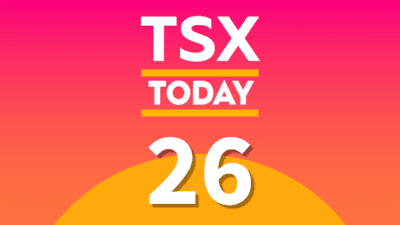BCE Inc. (TSX:BCE)(NYSE:BCE) is betting big on high-speed Internet, with plans to build fibre-to-the-home (FTTH) connections to 2.2 million households by the end of the year. The connected households could then sign up for super-fast Internet, with speeds as high as one gigabit per second (Gbps). This is all part of BCE’s $20 billion plan to upgrade its network by 2020.
You would think this is a sure bet. After all, households are constantly connecting more devices to the Internet, such as televisions, computers, tablets, and phones, and this requires a much faster Internet connection. Data-heavy services like online video and videoconferencing have taken off. And in today’s world, people are simply less willing to wait for anything.
Well unfortunately, it’s not that simple.
What is FTTH?
FTTH is the delivery of a communication service, such as an Internet connection, entirely through fibre optic cable. Unlike traditional Internet service, it does not use any copper wiring nor coaxial cable.
FTTH has a number of advantages over traditional Internet service. To start, it is far faster, especially over longer distances. It also has greater capacity and requires far less maintenance. But here’s the catch: it can be very expensive.
This isn’t because fibre optic cable itself is so pricey. Instead, the real cost comes from deploying the cable, which must be done either underground or atop telephone poles. Furthermore, most of us don’t need one Gbps Internet. Even Super HD videos on Netflix only require about a seven megabit per second (Mbps) connection. So, if everyone in the family is watching a different HD movie over the Internet, a 100 Mbps should be more than enough.
For these reasons, FTTH makes the most sense in new neighborhoods (where new Internet networks must be deployed anyways), and in condominiums. FTTH can also work well in neighborhoods that are dense and/or very wealthy.
FiOS
Verizon Communications Inc. (NYSE:VZ) learned the hard way about the pitfalls of FTTH. The company launched a program called FiOS, which aimed to connect roughly 20 million homes with fibre. But it cost the company a whopping US$1,350 to connect each household, and sales weren’t high enough to justify the price tag.
So, Verizon abandoned its FiOS build-out about two-thirds of the way through. It meant breaking a number of promises, and has led to some conflicts that remain unresolved.
How should investors respond?
BCE is without a doubt very familiar with Verizon’s misadventures, and surely will learn from them. So, the company’s shareholders shouldn’t be too worried about another FiOS disaster.
But if BCE ramps up spending, or seems determined to have the best network (no matter the cost), then shareholders should start to get nervous. The company pays a big dividend, and no one wants to see that put at risk.







